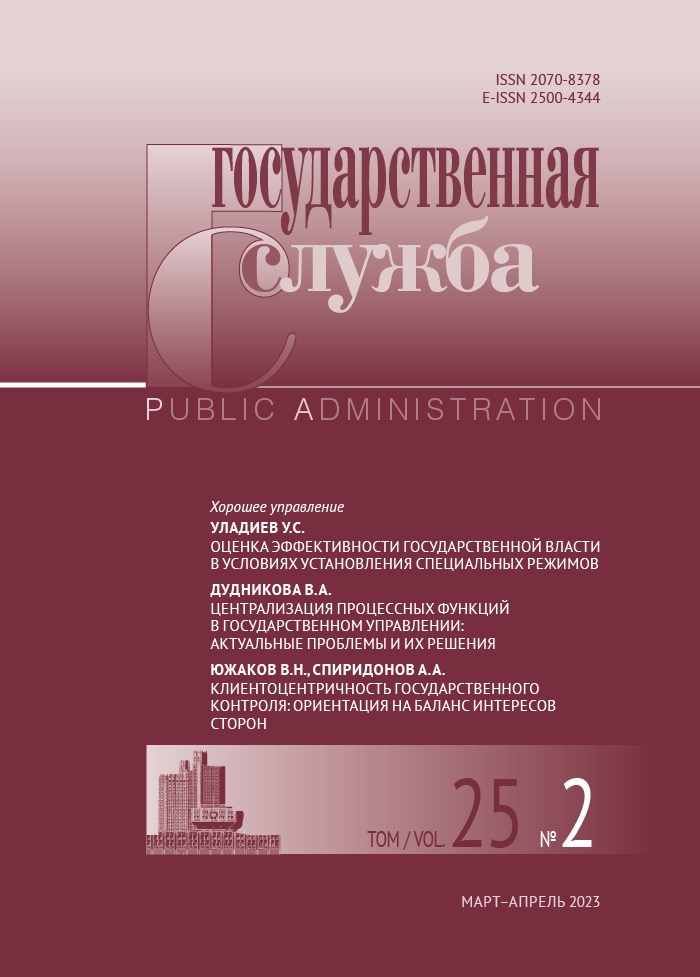Рекомендуемая ссылка на статью:
Михаил Анатольевич Ионцева
аРоссийская академия народного хозяйства и государственной службы при Президенте Российской Федерации
DOI: 10.22394/2070-8378-2023-25-2-109-118
Аннотация:
В статье рассматриваются ключевые вопросы открытия реабилитационных процедур во французском правопорядке. Автор изучает порядок консолидации или опровержения презумпции необходимости проведения процедуры, направленной на благосостояние должника. В открытии реабилитационной процедуры есть два аспекта: экономический и юридический, связанные друг с другом. Первый сводится к тому, что открытие такой процедуры зависит от структуры активов и капитала должника, так как ее целесообразно инициировать, как правило, только в тех случаях, когда есть возможность извлечения сверхприбыли на рынке. Юридической основой открытия реабилитации является презумпция необходимости проведения реабилитационной процедуры, которую необходимо опровергнуть, чтобы попасть в ликвидацию. Экономический критерий сводится к простым правилам, которыми руководствуется судья: представителей бизнеса, участвующего на рынках с мягкой или жесткой олигополией, нельзя сразу ликвидировать, в силу того, что будет нанесен значительный урон экономике (кроме сокращающихся секторов экономики). Представители рынков с монополистической конкуренцией, как правило, не затрагивают интересы большого круга лиц и не получают значительную сверхприбыль, в связи с чем их ликвидация не нанесет значительного урона экономике. Презумпция необходимости проведения реабилитации опровергается процессуальными способами доказывания, кредиторы должны предоставить доказательства того, что по их требованиям приостановлены платежи, а финансовая отчетность свидетельствует о том, что структура активов и пассивов имущественной массы должника может быть охарактеризована как несостоятельная.
Ключевые слова:
реабилитация, презумпция необходимости реабилитации, презумпция ликвидации, открытие реабилитации, опровержение презумпции, консолидация презумпции
Дата поступления статьи в редакцию:
16 марта 2023 года
Литература:
Бобылева А.З., Горев Д.Е., Зайцева Ю.А. Механизмы банкротства и их роль в обеспечении благосостояния человека: монография / отв. ред. С.А. Карелина, И.В. Фролов. М.: Юстицинформ, 2022.
Мохова Е.В. Компетентный суд и применимое право при привлечении директора должника к ответственности в трансграничном банкротстве. 2018. Закон. № 7. С. 86–106.
Bandrac M. La nature juridique de la prescription extinctive en matière civile. Paris, 1986.
Bonhomme B., Pérochon F. Entreprises en difficulté – Instruments de crédit et de paiement, 8e édition, LGDJ, 2009.
Boutiron P-J., Castanet B. Cheuvreux et autres, L’entrepreneur et ses patrimoines, Lextenso éditions, 2012.
Chartier Y. La désignation des représentants des personnes morales qui exercent une action en justice, note sous Ch. mixte, 22 février 2002, Bulletin, Ch. mixte, no 1, p. 1. Revue des sociétés, no 2, avril-juin 2002, p. 293.
Chopard B. Analyse économique du droit des entreprises en difficulté, Actualité jurisprudentielle, 2002.
Dubreuil B., Mestre J. La purge des dettes. Rev. proc. collect., 1989.
Duquesne F. Le tribunal de grande instance face au licenciement économique collectif. Droit social. 2002. No 6. P. 606–616.
Gerbi L. L’optimisation patrimoniale à l’épreuve des risques d’organisation d’insolvabilité (aspects de droit interne français). Thèse de doctorat en Droit, Soutenue en 2006 à Paris 9, Sous la direction de Bernard Grelon.
Gounon S. L’insolvabilité en droit privé. Thèse de doctorat en Droit, Soutenue en 2004 à Lyon 3 Sous la direction de Jacqueline Rubellin-Devichi.
Jacquemont A. Droit des entreprises en difficulté, 4eme éd, 2006, Litec – Editions du JurisClasseur.
Lambert-Faivre Y. Le Droit du dommage corporel: systèmes d’indemnisation, 3ème éd, Paris, Dalloz, 1996.
Lebel Ch. Conversion du redressement en liquidation judiciaire: audition de l’Ordre des médecins (non). Revue des procédures collectives. 2010. No 5, septembre-octobre, commentaire no 198, p. 54, note à propos de Com. 6 juillet.
Lienhard. Clôture pour insuffisance d’actif: compensation de plein droit, note sous Com. – 8 juillet 2008.
Recueil Dalloz, 4 septembre 2008, Actualité jurisprudentielle, p. 2072.
Marraud G. des Grottes. Privilège, déclaration de créance incomplète et rôle du jugecommissaire. Revue Lamy droit civil. No 96, septembre 2012, Actualités, no 4781, p. 32, note à propos de Com. – 5 juin 2012.
Martin-Serf. Le droit communautaire de la faillite. Une construction laborieuse et complexe (Colloque de Deauville des 3 et 4 avril 2004: entreprises en difficulté: un nouvel essai. Moins de liquidations par plus de prévention. Mythe ou réalité?). Revue de jurisprudence commerciale, hors série. 2004. P. 145–159.
Oberdorff H. Droits de l’homme et libertés fondamentales, 5e édition, L. G. D. J, 2015.
Remery J.-P. Le Ministère public et le droit des entreprises en difficulté: un an de jurisprudence commerciale de la Cour de cassation. Recueil Dalloz no 11 du 15 mars 2012, spèc. No 2 p. 702, à propos de Com. 31 janvier 2012.
Rolland B. Difficulté des entreprises: excès de pouvoir (non). Revue Procédures. 2010. No 7, juillet, commentaire no 286, p. 31, note à propos de Com. – 11 mai 2010.
Saada J., Xifaras M. Jurisprudence – Revue critique 2016. Le droit, entre théorie et critique, Université de Savoie.
Saint-Alary-Houin C. Droit des entreprises en difficulté, 9e édition, Domat 10ème édition, 2016.
Статьи в режиме Open Access публикуются в соответствии с лицензией Creative Commons Attribution 4.0 International (CC BY).

